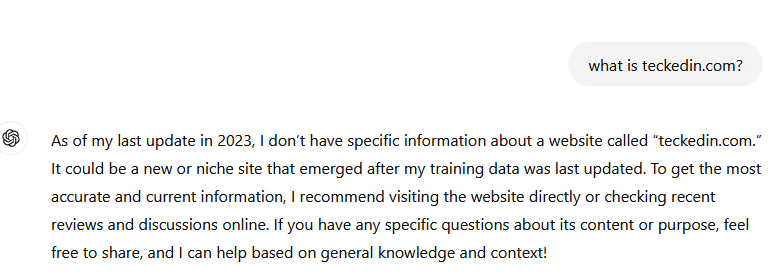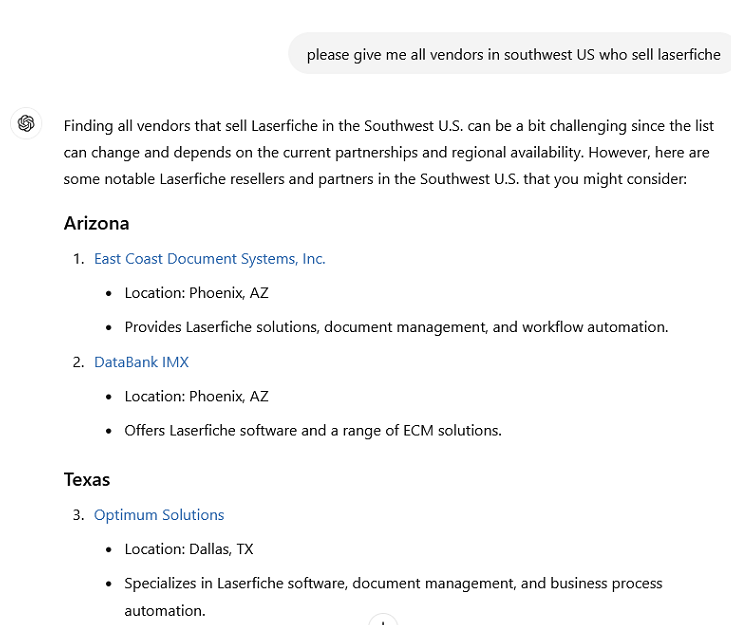Maybe I’m just too old to change or like to work differently than others.

I am the founder of the Teckedin knowledge base where we hand-curate and categorize information for CIOs, CISOs, IT Managers, and the vendors that support them.
We started populating our knowledge base in May of 2021.
Little did we know of the changes that would occur in November 2022 when ChatGPT was released.
In a sense we were ahead of the game.
I have only used ChatGPT a couple of times. I wanted to see what it would answer about my knowledge base.

I am guessing that a lot of answers come back with the same “canned” response.
My background is in business process automation, and I work with many people who are in Information Technology or are selling a solution or service to companies and government agencies.
In my experience, many people do not have time to search or go back and forth with prompts. They rely on trusted sources and peers to get their information. And they rely on trusted advisors and vendors to be looking out for their welfare — like keeping them updated on trends, risks, innovative solutions and industry trends.
I did this search today for a software that I have sold and implemented. My question is how were these ten vendors found by the tool? And who got missed for whatever reason?

This article from Techradar — Hardly any of us are using AI tools like ChatGPT, study says — here’s why is enlightening:
“Even among the people who have used generative AI tools like ChatGPT, Google Gemini or Microsoft Copilot, a large proportion said they’d only used them “once or twice”. Only a tiny minority (7% in the US, 2% in the UK) said they use the most well-known AI tool, ChatGPT, on a daily basis.”
And this article from Computerworld - Computerworld - I’ve got the genAI blues is also enlightening:
“I wish generative AI (genAI) tools were truly useful. They’re not. I keep tinkering with the programs — ChatGPT, Meta AI, Gemini, etc., etc. Mind you, they look useful if you don’t know any better. Their answers sound plausible. But if you look closer, even if you forgive them for their hallucinations — that is, lies — you’ll see all too often that the answers they give are wrong.”
I am hopeful that sites like mine and all the great websites we curate from will continue to grow their readership so that valuable information is shared, regardless of whether it comes back in a search or a prompt.
We don’t know what we don’t know, so how can we search or prompt for it. It takes work and effort to do research, learn and gain new perspectives. How can we bypass those steps? What would we be missing?
Debby Kruzic, Founder